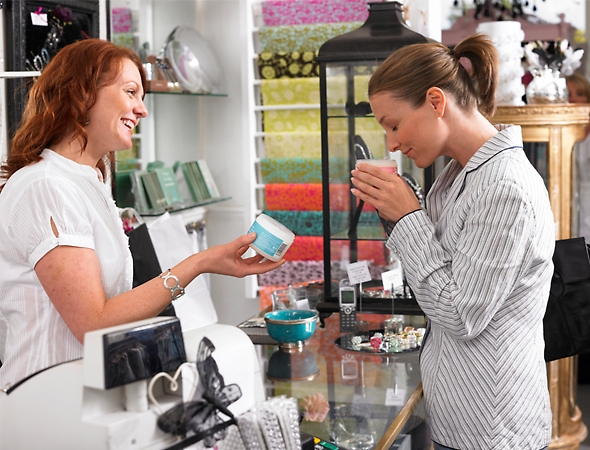Are Your Therapists Performing at 50%?

It’s no secret that most spas don’t exactly have their retail products leaping off the shelves. And it might come as no surprise that the spa treatment a customer books might not necessarily be the best one to resolve their particular issues. That is where the expertise of the therapist should come in.
But unfortunately many therapists are doing one half of what they should be doing. They’re not listening well, they’re not guiding your customers to the most effective spa treatment(s) and they’re not making product recommendations or sales.
This is a problem. According to a recent spa study;
–If a client buys 2 products there’s a 60% chance they will revisit
-If a client buys 1 product, there is a 30% chance they will revisit
-If a client buys no products there is a 10% chance they will revisit
For those resort hotels and spas with multiple locations around the globe with branding that has been meticulously cultivated, this may play out even more. With so much at stake, therapist training should be at the top of senior management’s budget.
Most schools do a great job of laying the foundation for performing treatments. But selling or making product recommendations? Not so much. So how do the therapists learn this skill? Isn’t it taught by the product representatives? Well, the truth is that the product reps are there to promote their products, not to train the therapists on how to engage with your customers.
Customer engagement is an entirely different skill set. If you have invested time and money into sales training for your therapists in the past, it was probably quite effective. For one or two weeks, maybe even a month.
And then your numbers began to creep down again. Ever had that experience?
That’s because most traditional sales training is designed for extroverts. Research tells us that most spa therapists and support staff (with therapist backgrounds) are introverts. These are folks who prefer to work in a very quiet setting in a one on one situation.
Most traditional sales training is delivered in a manner which is the exact opposite of your therapist’s comfort zone.
“Sales within spas are different than other retail environments, they are much more intimate and personal, says Lynne McNees, president of the International Spa Association (ISPA). “The therapists are professionals within their fields, so it’s not so much a sales push as it is a recommendation to the client.”
The best training builds upon the considerable emotional intelligence of the therapists. The results can be dramatic and immediate.
Just some food for thought as you review your monthly revenue report. Maybe it’s time to do something different.
I’ve got a few ideas for you.












